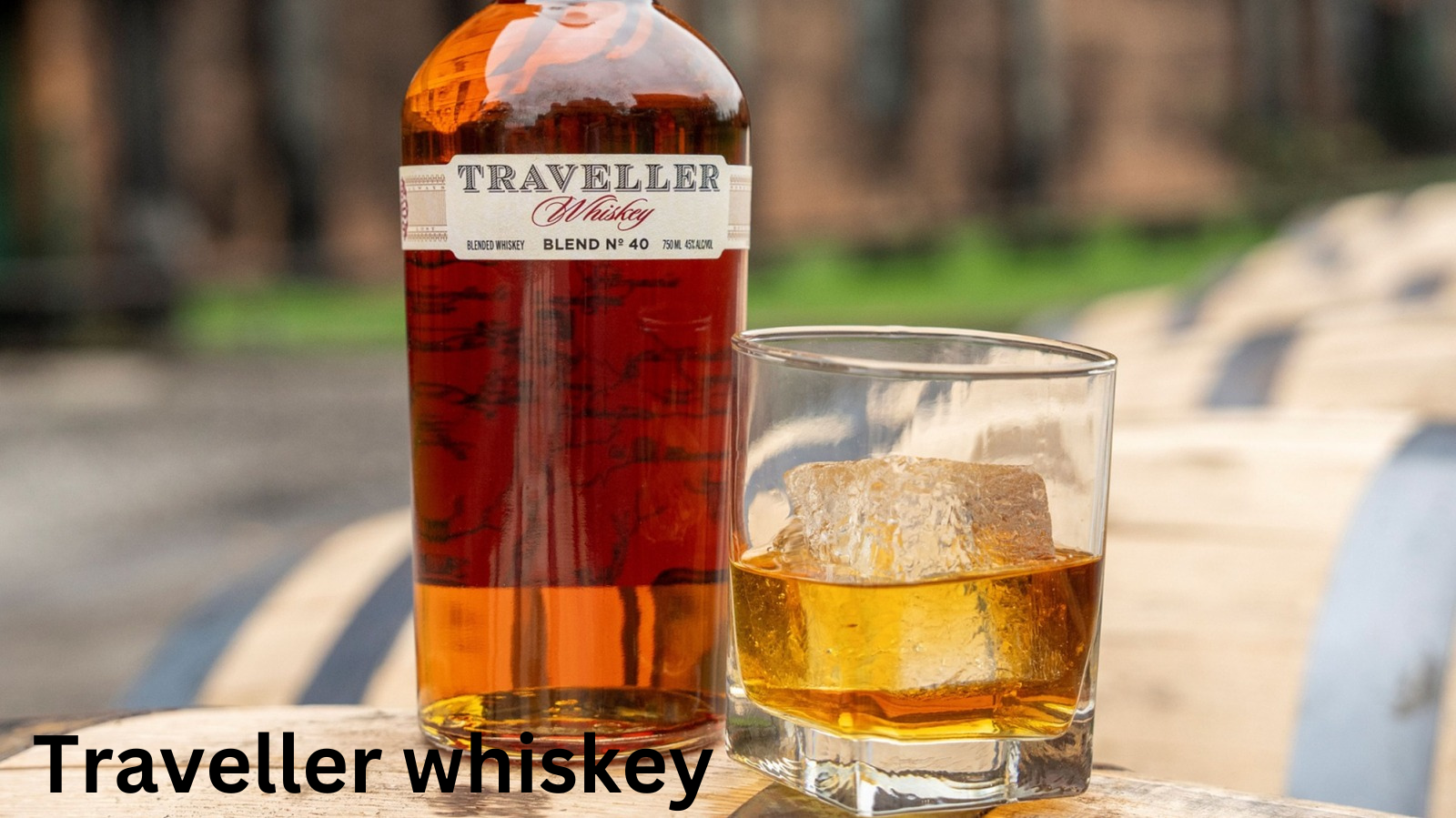
traveller whiskey
Introduction to Traveller Whiskey
Traveller Whiskey, often referred to simply as “whiskey,” holds a special place in the hearts of connoisseurs and casual drinkers alike. This revered spirit is more than just a drink; it’s a cultural icon with a rich history and a complex flavor profile that captivates the senses.
History and Origins of Traveller Whiskey
The origins of whiskey can be traced back centuries, with its roots entrenched in the distilling traditions of ancient civilizations. However, the modern concept of whiskey as we know it today began to take shape in medieval Europe, particularly in regions like Ireland and Scotland. We’ll discuss in this article about traveller whiskey.
The Distillation Process
The distillation process is a method used to separate mixtures based on differences in their volatility, or the tendency of substances to vaporize. It’s commonly employed in various industries including chemistry, petroleum refining, and beverage production.
Here’s how it generally works:
- Heating: The mixture is heated in a vessel called a still. The heat increases the temperature of the mixture, causing the more volatile components to vaporize while leaving behind the less volatile ones.
- Vaporization: The vaporized components rise and pass into a condenser, where they are cooled and condense back into liquid form. This process usually involves circulating cold water around the condenser to facilitate the condensation. We’ll discuss in this article about traveller whiskey.
- Collection: The concentrated liquid is gathered in a distinct vessel. This liquid is enriched in the more volatile components, while the original mixture in the still becomes richer in the less volatile ones.
Types and Varieties of Traveller Whiskey
Traveller Whiskey encompasses a wide range of types and varieties, each offering unique flavors and characteristics. Here are some common types and varieties you might encounter:
- Single Malt Scotch: Made from 100% malted barley and distilled at a single distillery in Scotland, single malt Scotch whisky is known for its complex flavors ranging from fruity to smoky, depending on factors such as region and aging.
- Bourbon: A type of American whiskey primarily made from corn and aged in new charred oak barrels. Bourbon typically has a sweet and robust flavor profile with notes of caramel, vanilla, and oak.
- Rye Whiskey: Made primarily from rye grain, this type of whiskey offers a spicier and more assertive flavor profile compared to bourbon. Rye whiskey may feature notes of pepper, cinnamon, and dried fruit.
- Irish Whiskey: Known for its smooth and approachable character, Irish whiskey is typically triple-distilled for a lighter and smoother flavor profile. It often features notes of honey, citrus, and malt. We’ll discuss in this article about traveller whiskey.
- Blended Scotch Whisky: Combining malt and grain whiskies from multiple distilleries, blended Scotch whisky offers a balanced and versatile flavor profile. It can range from light and delicate to rich and complex, depending on the blend.
Factors Influencing Flavor Profiles
Several factors influence the flavor profiles of whiskey, contributing to the complexity and diversity of this beloved spirit. Here are some key factors:
- Ingredients: The primary grains used in whiskey production, such as barley, corn, rye, and wheat, significantly impact flavor. Each grain brings its distinct characteristics, with barley often imparting malty sweetness, corn contributing sweetness and richness, rye adding spiciness, and wheat providing softness and smoothness. We’ll discuss in this article about traveller whiskey.
- Water Source: The quality and mineral content of the water used during the production process can influence the flavor of whiskey. Water sourced from different regions or aquifers may contain varying mineral compositions, subtly shaping the taste of the final product.
- Yeast Strain: Yeast plays a crucial role in fermentation, converting sugars into alcohol and producing a range of flavor compounds. Distilleries often use specific yeast strains, each with its fermentation characteristics that can contribute to the flavor profile of the whiskey.
By considering these factors, whiskey producers can craft a diverse range of flavor profiles, each offering a unique sensory experience for enthusiasts to explore and appreciate.
Appreciating Traveller Whiskey
Appreciating Traveller Whiskey involves engaging with its complexities, flavors, and nuances mindfully and deliberately. Here are some steps to help you fully appreciate the experience:
- Selecting the Whiskey: Choose a Traveller Whiskey that intrigues you or aligns with your preferences. Consider factors such as the type of whiskey (e.g., single malt Scotch, bourbon, Irish whiskey), its age, and any unique characteristics or flavor notes mentioned on the label.
- Observation: Begin by visually inspecting the whiskey in your glass. Note its color, clarity, and viscosity. Swirl the whiskey gently to observe any legs or tears that form on the side of the glass, which can indicate its alcohol content and viscosity. We’ll discuss in this article about traveller whiskey.
- Aroma: Bring the glass to your nose and take in the aromas of the whiskey. Spend some time exploring the various scents that emerge, such as fruit, spice, oak, caramel, or floral notes. Allow the aromas to evolve and develop as you continue to nose the whiskey.
- Tasting: Take a small sip of the whiskey and allow it to envelop your palate. Pay attention to the initial flavors that greet your taste buds, followed by any secondary or lingering notes that emerge. Consider the whiskey’s texture, mouthfeel, and overall balance of flavors.
By following these steps and approaching Traveller Whiskey with curiosity, mindfulness, and an open palate, you can enhance your enjoyment and appreciation of this timeless spirit.
Popular Brands and Distilleries
Traveller Whiskey enthusiasts have a wide array of popular brands and distilleries to explore, each offering its unique expressions and styles. Here are some well-known brands and distilleries renowned for their quality whiskies. We’ll discuss in this article about traveller whiskey.
- Glenfiddich: Located in Dufftown, Scotland, Glenfiddich is one of the most iconic Scotch whisky distilleries. Known for its range of single malt whiskies, Glenfiddich offers expressions ranging from the classic 12-year-old to rare and limited editions.
- Macallan: Situated in Speyside, Scotland, The Macallan is celebrated for its rich and complex single malt Scotch whiskies. With a focus on sherry cask maturation, The Macallan produces a range of expressions including the highly sought-after Sherry Oak and Fine Oak series. We’ll discuss in this article about traveller whiskey.
- Jack Daniel’s: Based in Lynchburg, Tennessee, Jack Daniel’s is one of the most famous American whiskey brands. Known for its signature charcoal-mellowed Tennessee whiskey, Jack Daniel’s offers a range of expressions including Old No. 7, Gentleman Jack, and Single Barrel.
- Jameson: Hailing from Dublin, Ireland, Jameson is a beloved Irish whiskey brand recognized for its smooth and approachable character. Produced by the Midleton Distillery, Jameson offers a variety of expressions including the classic Jameson Irish Whiskey, as well as special editions and cask finishes.
These are just a few examples of the many popular brands and distilleries in the world of Traveller Whiskey, each contributing to the rich tapestry of flavors and experiences enjoyed by whiskey enthusiasts worldwide.
Sustainable Practices in Whiskey Production
Sustainable practices in whiskey production are increasingly important as the industry seeks to minimize its environmental impact and ensure the long-term viability of resources. Here are some sustainable practices adopted by whiskey producers:
- Water Conservation: Whiskey production requires significant amounts of water for various processes, including mashing, fermentation, and cooling. Distilleries are implementing water-saving measures such as recycling water, using closed-loop systems, and investing in water-efficient technologies to minimize consumption and reduce wastewater discharge. We’ll discuss in this article about traveller whiskey.
- Energy Efficiency: Distilleries are implementing energy-saving measures to reduce their carbon footprint and lower energy costs. This includes upgrading equipment to more energy-efficient models, optimizing production processes to minimize energy usage, and utilizing renewable energy sources such as solar, wind, or biomass.
- Waste Management: Distilleries are implementing strategies to reduce, reuse, and recycle waste generated during whiskey production. This includes composting spent grains for use as animal feed or fertilizer, recycling packaging materials, and exploring innovative solutions for waste reduction and diversion.
By adopting these sustainable practices, whiskey producers are not only reducing their environmental impact but also contributing to a more resilient and sustainable future for the industry and the planet as a whole.
The Global Appeal of Traveller Whiskey
Traveller Whiskey enjoys global appeal for several reasons, making it a beloved spirit cherished by enthusiasts around the world. Here are several factors that contribute to its widespread popularity:
- Rich Heritage and Tradition: Whiskey production has a long and storied history, with traditions that have been passed down through generations. From the rolling hills of Scotland to the bourbon trails of Kentucky, each whiskey-producing region has its unique heritage and craftsmanship, attracting whiskey aficionados seeking to explore the rich tapestry of flavors and techniques.
- Diverse Flavors and Styles: Traveller Whiskey encompasses a diverse range of flavors and styles, from the peaty and smoky single malts of Scotland to the sweet and mellow bourbons of America. Whether you prefer the smoothness of Irish whiskey, the complexity of Scotch whisky, or the boldness of American bourbon, there’s a whiskey style to suit every palate and preference. We’ll discuss in this article about traveller whiskey.
- Craftsmanship and Artistry: Whiskey production is a labor of love that requires skill, patience, and attention to detail. From selecting the finest grains and yeast strains to carefully monitoring the fermentation and aging process, whiskey producers take pride in their craft, creating spirits of exceptional quality and character that captivate the senses and delight the palate.
Overall, the global appeal of Traveller Whiskey lies in its ability to capture the imagination, evoke a sense of adventure, and create memorable experiences that transcend language, culture, and geography. Whether enjoyed solo or shared with friends, whiskey is more than just a drink. it’s a journey of discovery and a celebration of life’s simple pleasures.
Future Trends in the Whiskey Industry
The whiskey industry is constantly evolving, driven by changing consumer preferences, technological advancements, and global market trends. Here are some future trends that are likely to shape the whiskey industry in the coming years:
- Innovation in Flavor Profiles: As consumers become more adventurous and discerning, there is a growing demand for innovative and unconventional whiskey flavors. Distilleries are experimenting with unique ingredients, aging techniques, and flavor infusions to create exciting new expressions that push the boundaries of traditional whiskey production.
- Rise of Craft and Small-Batch Whiskey: With consumers increasingly valuing authenticity, craftsmanship, and uniqueness, there is a growing interest in craft and small-batch whiskey brands. These artisanal producers offer distinctive flavors, limited releases, and personalized experiences that resonate with whiskey enthusiasts seeking something special and exclusive. We’ll discuss in this article about traveller whiskey.
- Sustainability and Environmental Responsibility: As environmental concerns continue to gain prominence, whiskey producers are prioritizing sustainability and implementing eco-friendly practices throughout the production process. This includes initiatives such as water conservation, energy efficiency, waste reduction, and sustainable sourcing of ingredients and packaging materials.
- programs that allow enthusiasts to create their unique whiskey expressions.
- Cultural and Heritage Preservation: As whiskey continues to play a central role in cultural traditions and heritage, there is a renewed focus on preserving and celebrating the history, craftsmanship, and cultural significance of whiskey production. Distilleries are investing in heritage tourism, educational programs, and historical preservation efforts to share their stories and engage with whiskey enthusiasts on a deeper level.
These future trends are expected to shape the whiskey industry in the years to come, driving innovation, sustainability, and growth while honoring the rich legacy and timeless appeal of this beloved spirit. We’ll discuss in this article about traveller whiskey.
Exploring Whiskey Tourism
Whiskey tourism, also known as whiskey travel or distillery tourism, is a growing trend among enthusiasts who seek to deepen their appreciation for whiskey by visiting distilleries, exploring whiskey-producing regions, and immersing themselves in the culture and heritage of whiskey production. Here’s a guide to exploring whiskey tourism:
- Research Destinations: Start by researching whiskey-producing regions around the world, such as Scotland, Ireland, the United States, Canada, and Japan. Each region has its own unique whiskey heritage, traditions, and distillery offerings to explore.
- Plan Your Itinerary: Once you’ve chosen a destination, plan your itinerary based on the distilleries you want to visit, as well as other attractions and activities in the area. Consider factors such as proximity, opening hours, tour availability, and transportation options. We’ll discuss in this article about traveller whiskey.
- Visit Distilleries: Schedule tours and tastings at distilleries to learn about the whiskey-making process firsthand, from grain to glass. Guided tours typically include visits to production facilities, barrel warehouses, and tasting rooms, where you can sample a variety of whiskey expressions and gain insights from knowledgeable guides.
- Experience Whiskey Culture: In addition to distillery visits, immerse yourself in the local whiskey culture by attending whiskey festivals, tastings, and events. Explore historic sites, museums, and heritage centers dedicated to whiskey production, and engage with locals to learn about their traditions and customs.
Whiskey tourism offers a unique and immersive way to discover the world of whiskey, from its origins and production methods to its diverse flavors and cultural significance. Whether you’re a seasoned whiskey enthusiast or a curious newcomer, whiskey tourism provides endless opportunities for exploration, discovery, and enjoyment.
Health Consideration
When enjoying whiskey, it’s important to consider some health factors:
- Moderation: Like any alcoholic beverage, moderation is key when consuming whiskey. Excessive alcohol consumption can lead to various health problems, including liver damage, heart disease, and addiction. It’s recommended to limit intake to moderate levels, which generally means up to one standard drink per day for women and up to two for men. We’ll discuss in this article about traveller whiskey.
- Hydration: Alcohol is a diuretic, meaning it can cause dehydration. To mitigate this, it’s essential to stay hydrated by drinking plenty of water alongside whiskey consumption. Alternating between alcoholic drinks and water can help maintain hydration and reduce the risk of adverse effects such as headaches and fatigue.
- Sensitivity and Allergies: Some individuals may be sensitive or allergic to certain ingredients in whiskey, such as grains or sulfites. If you have a known sensitivity or allergy, it’s important to read labels carefully and choose whiskey varieties that are suitable for your dietary needs. Additionally, consulting with a healthcare professional can guide safe consumption.
- Interactions with Medications: Whiskey and other alcoholic beverages can interact with certain medications, potentially reducing their effectiveness or causing adverse reactions. It’s crucial to consult with a healthcare provider or pharmacist about any potential interactions between whiskey and medications you may be taking.
- Pregnancy and Nursing: It’s recommended that pregnant women abstain from alcohol consumption altogether, as it can harm the developing fetus and lead to complications such as fetal alcohol syndrome. Additionally, breastfeeding mothers should also exercise caution, as alcohol can pass into breast milk and affect the baby’s health and development. We’ll discuss in this article about traveller whiskey.
- Drinking Responsibly: Responsible drinking involves being mindful of one’s alcohol consumption and its potential effects on health and safety. It’s essential to know your limits, avoid driving or operating machinery under the influence of alcohol, and prioritize the well-being of yourself and others when drinking whiskey or any other alcoholic beverage.
By considering these health factors and practicing responsible drinking habits, individuals can enjoy whiskey safely and mindfully, minimizing potential risks and maximizing the enjoyment of this beloved spirit.
The Art of Whiskey Cocktails
The art of whiskey cocktails combines the rich flavors of whiskey with complementary ingredients to create delicious and complex drinks. Whether you prefer classic concoctions or innovative twists, mastering the art of whiskey cocktails allows you to explore a world of creative possibilities. Here’s a guide to crafting whiskey cocktails:
- Selecting Your Whiskey: The first step in creating a whiskey cocktail is choosing the right whiskey for the job. Different types of whiskey, such as bourbon, rye, Scotch, or Irish whiskey, each have their distinct flavors and characteristics that can influence the taste of the final cocktail. Consider the flavor profile you want to achieve and select a whiskey that complements the other ingredients in the cocktail. We’ll discuss in this article about traveller whiskey.
- Choosing Complementary Ingredients: Whiskey cocktails typically include a combination of other ingredients such as sweeteners, bitters, citrus juices, and modifiers. Experiment with different ingredients to find the perfect balance of flavors and textures for your cocktail. Common ingredients used in whiskey cocktails include vermouth, simple syrup, angostura bitters, lemon juice, and club soda.
- Balancing Flavors: The key to a great whiskey cocktail is achieving a harmonious balance of flavors. Pay attention to the sweetness, acidity, bitterness, and alcohol content of the ingredients, and adjust the proportions as needed to create a well-balanced cocktail. Taste as you go and make adjustments until you achieve the desired flavor profile.
- Experimenting with Techniques: Whiskey cocktails can be made using a variety of techniques, including shaking, stirring, muddling, and layering. Experiment with different methods to achieve different textures and levels of dilution in your cocktails. For example, shaking cocktails with citrus juice and egg whites can create a frothy texture, while stirring cocktails with vermouth and bitters can produce a silky smooth finish. We’ll discuss in this article about traveller whiskey.
By mastering the art of whiskey cocktails, you can elevate your drinking experience and impress your guests with delicious and creative libations that showcase the beauty and versatility of whiskey. Cheers!
Whiskey Collecting and Investment
Whiskey collecting and investment have become increasingly popular in recent years, driven by a growing interest in rare and limited-edition bottlings, as well as the potential for financial gain. Here’s a guide to whiskey collecting and investment:
- Research and Education: Start by educating yourself about the whiskey market, including popular brands, distilleries, and trends. Learn about different whiskey styles, production techniques, and factors that influence the value of collectible bottles. Join whiskey forums, attend tastings, and read books and articles to expand your knowledge and understanding of the industry.
- Set Goals and Budget: Determine your collecting goals and budget, taking into account factors such as your personal preferences, financial resources, and investment objectives. Decide whether you’re collecting for enjoyment, investment, or a combination of both, and establish a budget that aligns with your goals and priorities. We’ll discuss in this article about traveller whiskey.
- Identify Collectible Bottles: Research and identify collectible bottles that are highly sought after by collectors and investors. Look for rare and limited-edition releases, discontinued expressions, and bottles with unique packaging or provenance. Pay attention to factors such as age, distillery, brand reputation, and market demand when evaluating potential acquisitions.
- Purchase and Acquisition: Acquire collectible bottles through reputable sources such as specialty retailers, auction houses, and private sellers. Be cautious of counterfeit bottles and ensure authenticity by verifying provenance, labels, and packaging details. Consider joining whiskey clubs and online communities to network with other collectors and gain access to exclusive buying opportunities.
By following these guidelines, you can embark on a rewarding journey of whiskey collecting and investment, building a diverse and valuable collection while enjoying the pleasures and camaraderie of the whiskey community.
Conclusion: Embracing the Rich Heritage of Traveller Whiskey
In conclusion, embracing the rich heritage of Traveller Whiskey is a journey of exploration, appreciation, and connection to a timeless tradition that spans continents and cultures. From the rugged landscapes of Scotland to the rolling hills of Kentucky, each whiskey-producing region tells a story of craftsmanship, innovation, and passion that has been passed down through generations. We’ll discuss in this article about traveller whiskey.
Traveller Whiskey offers a diverse array of flavors, styles, and expressions, inviting enthusiasts to embark on a sensory adventure that engages the palate and delights the senses. Whether sipping a smoky single malt Scotch by the fireside or savoring a smooth bourbon in the company of friends, each dram of whiskey carries with it the essence of its origins and the craftsmanship of its makers.
Unique FAQs
- Is whiskey the same as bourbon?
-
-
- While all bourbon is whiskey, not all whiskey is bourbon. Bourbon must meet specific legal requirements, including being made in the United States and containing at least 51% corn in the mash bill. We’ll discuss in this article about traveller whiskey.
-
- Does whiskey improve with age?
-
-
- Whiskey does age in the barrel, but aging doesn’t always equate to better quality. The optimal aging period varies depending on factors like barrel type, climate, and distillation techniques.
-
- Can whiskey go bad?
-
-
- Unlike wine, whiskey does not spoil or deteriorate with age. However, exposure to air and sunlight can affect its flavor and aroma, so it’s best to store it properly in a cool, dark place. We’ll discuss in this article about traveller whiskey.
-
- What is the difference between Scotch and Irish whiskey?
-
-
- Scotch whiskey is typically made from malted barley and distilled twice, while Irish whiskey can include other grains and is often triple-distilled, resulting in a smoother, lighter spirit.
-
- Is whiskey gluten-free?
-
- Pure whiskey distilled from grains is technically gluten-free. However, some individuals with gluten sensitivities may still experience reactions due to residual gluten traces during the distillation process.


